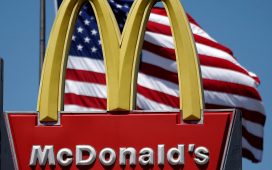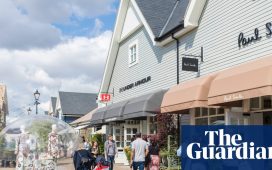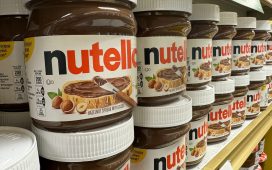This story is part of CNBC’s quarterly Cities of Success series, which explores cities that have transformed into business hubs with an entrepreneurial spirit that has attracted capital, companies and employees.
Nestled against the Rocky Mountains, Boulder, Colorado, has blossomed into a thriving hub for the natural products and wellness industry. Here, companies generate billions in revenue, all stemming from a deep appreciation for entrepreneurship, the outdoors and healthy living.
The industry’s roots trace back to local hikers who, in 1969, hand-picked wild herbs on the foothills of the Rockies, inspiring the creation of tea company Celestial Seasonings, a pioneer of the natural foods movement, according to a local industry group. The tea company was later acquired by Hain Food Group — now Hain Celestial Group — in 2000 for $390 million.
“This [region] is the epicenter of natural and organic,” Hain Celestial Group President and CEO Wendy Davidson told CNBC in a recent interview for the upcoming primetime special “Cities of Success,” which airs April 11 at 10 p.m. EDT. “If you want to drive growth, if you want to be in the industry in an authentic way, Boulder is the place to be.”
Hain Celestial Group CEO Wendy Davidson (left) and CNBC’s Andrea Day (right) trekking along the historic footrails where the founders of Celestial Seasonings gathered wild herbs in 1969.
CNBC
Today, Celestial Seasonings, still headquartered in Boulder, brews over 1.6 billion cups of tea annually, with sales exceeding $150 million. Its success story serves as an inspiration for countless entrepreneurs in the area.
“It’s the people. It’s the environment – the entrepreneurial environment and the focus on natural and organic and wellness has allowed us to scale and grow one of our largest and most profitable brands in the company,” Davidson said.
The Boulder region’s emphasis on healthy living has fueled a booming industry, generating a whopping $2.1 billion annually for Colorado’s economy, according to an October 2020 study by the Leeds School of Business at the University of Colorado Boulder. That contribution translates to over 22,000 jobs and a significant impact on production, supply chains and consumer spending, according to the study.
Turning peanut butter into gold
The Boulder County Farmers Market, a vibrant incubator since 1987, exemplifies the region’s thriving ecosystem.
A sign from the Boulder Farmers Market, operating from April to November, serving as an incubator for numerous small food businesses.
CNBC
From April to November, the market transforms into a testing ground for aspiring food entrepreneurs. Over 100 small businesses showcase their products to a hungry crowd of 100,000 shoppers annually. Sales at the market have skyrocketed 400% since 2013, reaching a cool $5.7 million in 2023, according to the nonprofit organization Behind the Markets.
It’s also here that a simple jar of nut butter can become pure gold.
In 2004, Justin Gold, armed with his homemade peanut and almond butters, started “slinging jars” to the local Boulder community at the farmers market.
In this historic photo, Justin Gold, founder of Justin’s Nut Butter, fills jars of peanut butter during the early days when he sold his product at a local farmers market.
Justin’s
What began as free samples quickly grew into a hit product. The unique, all-natural flavors resonated with health-conscious consumers, and jars of Justin’s, as they were branded, became a familiar sight at the market.
But this wasn’t enough for Gold — he ultimately leveraged his popularity to convince local retailers to stock his brand on their shelves. Slowly but surely, the business grew, eventually culminating in a landmark deal with Whole Foods. Justin’s products can now be found at health stores and coffee shops across the country.
“What we accomplished just blew out my wildest dreams,” Gold told CNBC.
The journey from a single farmer’s market stall to a $281 million sale to Hormel Foods in 2016 is a testament to both Gold’s vision and the unique environment that Boulder fosters.
Packages of Justin’s brand peanut butter cups are arranged for a photograph in Tiskilwa, Illinois, U.S., on Monday, Aug. 15, 2016.
Daniel Acker | Bloomberg | Getty Images
Gold said the city’s vibrant community of entrepreneurs, its focus on health and wellness, and the beautiful natural surroundings are the key ingredients of his success story.
“Everybody here is up to something really interesting,” he said. “You don’t have to be in an office environment to be creative, you can be outside. And I think the confluence of all these great things breed some really extraordinary outcomes.”
Inspired by Gold’s success, Juan Stewart launched his Latin American sparkling fruit drink, Frescos Naturales, at the Boulder County Farmers Market in 2021.
Stewart quickly recognized the market’s power, calling it “the hub of the natural food industry” where many brands have achieved national success.
Frescos Naturales founder Juan Stewart maneuvers a cart laden with cases of his sparkling fruit drinks inside a warehouse.
CNBC
His gamble paid off. Within its first year, Frescos raked in over $40,000 in sales and secured a distribution deal with grocery chain Kroger.
“I was very lucky to be in Boulder when I launched this brand,” Stewart reflected.
Moving cross country
Naturally Boulder, a group founded in 2005, is proving to be a breeding ground for success in the natural and organic food industry. By supporting entrepreneurs and connecting startups with local investors, the group has fostered a powerful cluster of companies that’s attracting businesses from across the country.
“Companies that started here, like a Celestial [Seasonings] they had success. So other people started coming here,” said Kristine Carey, executive director at Naturally Boulder. “Companies are still moving here… there’s a resurgence of energy.”
This energy is evident in the story of Kristy Lewis, founder of Quinn Snacks.
Quinn Snacks founder Kristy Lewis showing off her snacks in a grocery aisle.
Kristy Lewis
In 2010, Lewis built her business to $2 million in sales just outside Boston, but to reach the next level, she knew she needed to make a big move.
“I had this gut feeling that if we were going to be truly successful, that we had to be in Boulder,” Lewis said.
After that move 10 years ago, Lewis saw her brand explode. Quinn Snacks’ annual sales, she says, are now north of $30 million.
“I definitely don’t think we would have succeeded without this group of people backing us,” Lewis said, referring to the Boulder community. “We knew it was exactly where we needed to be.”
Correction: This article has been updated to reflect the final purchase price of Justin’s Nut Butter by Hormel Foods. It was $281 million.








